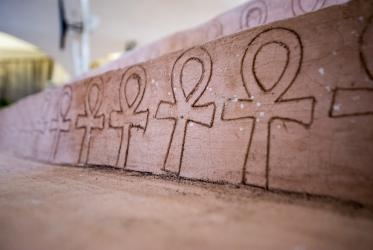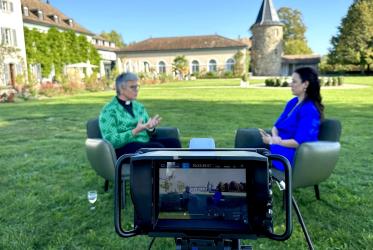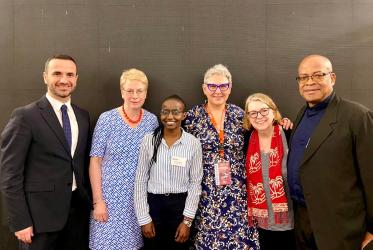Pentecostals and Charismatics are among the fastest growing Christian groups in the world. The question is to what extent the Pentecostals understand themselves as a church or a movement. This existential and ecclesiological issue remains ambiguous.
These views were shared by Dr Tamara Grdzelidze at the Empowered21 (E21) Global Scholars Consultation, held from 8 to 10 July in Sydney, Australia.
Grdzelidze, programme executive for the Commission on Faith and Order of the World Council of Churches, participated in the consultation as an observer, along with Prof. Neil Ormerod of the Roman Catholic Church.
The consultation gathered Pentecostal scholars, mostly from Asia, to reflect on ecclesial, sociological, theological and academic challenges that “Spirit-empowered” Christianity faces in the 21st century.
The group of Pentecostal and Charismatic scholars are preparing for the Empowered21 Global Congress, set to take place at Jerusalem in 2015.
“The E21 brings various Pentecostal trends around one table, I believe; however, I wish I had seen more efforts in that direction,” said Grdzelidze.
“Delay in holding effective discussions among all trends of the Pentecostal movement can have serious repercussions for Pentecostal self-identity. There are no visible signs to strengthen the cognitive foundation of the rapidly growing movement,” noted Grdzelidze, who comes from the Georgian Orthodox Church.
The E21 claims as its vision that “every person on earth would have an authentic encounter with Jesus Christ through the Power and Presence of the Holy Spirit …by Pentecost 2033”. It aims to shape the renewal of future generations of Pentecostals and Charismatics.
Sharing her observations from an ecumenical perspective, Grdzelidze stated that “personal experience and witness are of a paramount importance, but the data is lost without mechanisms of mutual accountability.”
“Pentecostals and Charismatics are not the exclusive possessors of the Holy Spirit. Many traditions are strongly committed to the divine charisma,” she added.
The consultation was a follow-up of an event held in June, 2012 at Oxford, United Kingdom, and will be followed by one planned to be held in 2014 at Quito, Ecuador.
While in Australia, Grdzelidze also participated at the 8th Forum of the National Council of Churches in Australia (NCCA) held in Melbourne, 5 to 9 July. Reflecting on the theme “Mission Shaped Ecumenism”, she was one of the speakers alongside the Rev. Dr Michael Kinnamon.
She presented to the NCCA The Church: Towards a Common Vision, a Faith and Order convergence text which will be presented at the WCC’s upcoming assembly in Busan, Republic of Korea.






